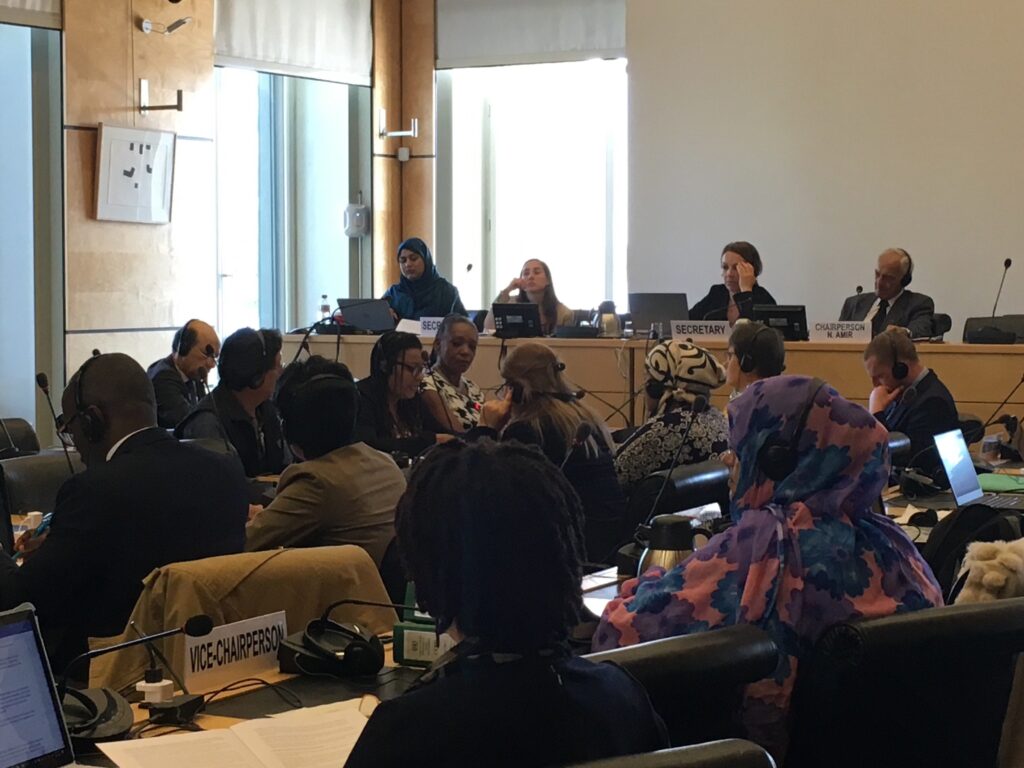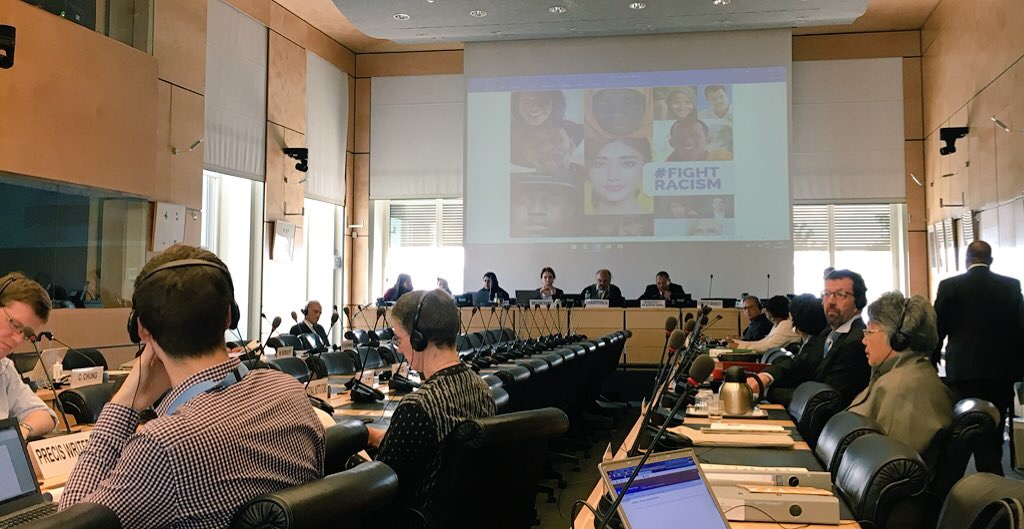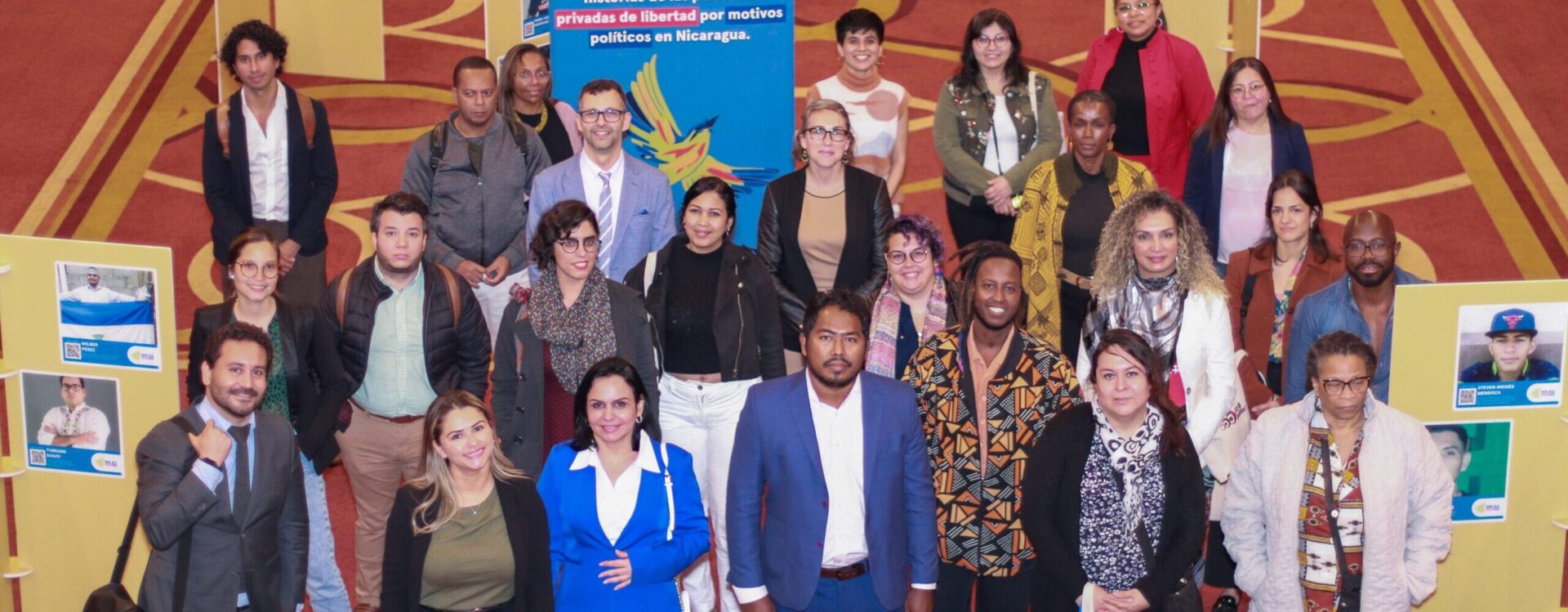Raza e Igualdad expresa su preocupación y hace un llamado a la CIDH a pronunciarse sobre la grave situación de violencia y discriminación que atraviesa la población LGBTI en Colombia en medio de la emergencia por COVID-19
Bogotá, 25 de junio de 2020 – El Instituto Internacional sobre Raza, Igualdad y Derechos Humanos (Raza e Igualdad) se dirige a la honorable CIDH para expresar su preocupación por los recientes sucesos de violencia y discriminación contra la población LGBT en diferentes lugares de Colombia, que prenden las alarmas frente a lo que se considera un incremento en los episodios de vulneración de derechos humanos de esta población, en medio de la emergencia sanitaria ocasionada por COVID-19. A las repercusiones y afectaciones desproporcionadas que tienen que vivir las personas lesbianas, gays, bisexuales y trans como resultado de la pandemia, se suman los altos índices de asesinatos y agresiones en razón a su orientación sexual y/o identidad de género.
Los asesinatos y las agresiones han aumentado considerablemente
En lo que va de 2020 ya se han registrado 15 homicidios contra personas LGBT, la cifra más alta que se haya registrado para la primera mitad del año en el Caribe colombiano, de acuerdo a Caribe Afirmativo[1]. El 13 de junio de 2020, fue hallada sin vida en su vivienda, Ariadna Barrios Ojeda, una mujer trans que vivía al sur de la ciudad de Santa Marta (Magdalena). El cuerpo presentaba múltiples heridas provocadas con un arma corto punzante[2]. Al día siguiente, bajo la misma modalidad, se denunció que en Barranquilla (Atlántico), Brandy Carolina, una mujer trans había sido asesinada. Meses antes, en el mismo barrio donde falleció Brandy, fueron asesinadas Paloma[3], una mujer trans, y Lidia Gamero, una mujer lesbiana, el 16 de abril y el 26 de marzo, respectivamente[4].
A los anteriores hechos se suman diversos intentos de asesinatos contra personas LGBT, como el ocurrido el 24 de marzo, en el que dos mujeres migrantes, trans y trabajadoras sexuales fueron apuñaladas en la ciudad de Bogotá, luego de ser perseguidas por todo el barrio y ser heridas en sus senos y glúteos.[5]. En esta ciudad también se registró un ataque con arma blanca el 18 de abril de 2020 en contra de Daian Nikol Villalobos, una mujer trans que se disponía a comprar víveres, en el marco de la medida de pico y género implementada en Bogotá[6]. A pesar de que las víctimas solicitaron atención en salud y atención por parte de miembros de la policía, esta fue negada y tras la ausencia de las instituciones, ellas mismas tuvieron que adoptar medidas para la respectiva curación y cuidado[7].
Han incrementado las denuncias de abusos policiales
Los abusos y la violencia también provienen de las entidades gubernamentales. Apenas ayer, 22 de junio, miembros de la policía persiguieron y atacaron con electrochoques a dos mujeres trans en situación de habitabilidad de calle en Tunja (Boyacá)[8]. La madrugada del sábado 20 de junio, se denunció el ataque perpetrado por miembros de la Policía Nacional en contra de un grupo de mujeres trans trabajadoras sexuales en el centro de Bogotá, quienes las agredieron con armas de fuego luego de insultarlas reiteradamente[9]. Estos episodios dan cuenta de la discriminación y violencia históricamente ejercida por la Policía Nacional en la zona, quienes, en medio de la pandemia, extorsionan a las trabajadoras sexuales para dejarlas trabajar, abusando física y psicológicamente de aquellas que no pueden pagar el monto exigido[10]. En la mañana del 02 de mayo, cuando aún estaba vigente la medida de Pico y Género en Bogotá, se registró el desalojo violento de una mujer afro trans, trabajadora sexual de su hogar, por parte de la Policía Nacional sin que hayan sido esclarecidas las razones que motivaron la intervención de esta institución[11].
Violencia institucional y respuesta estatal insuficiente
Si bien ha habido pronunciamientos públicos de rechazo y anuncios sobre el reforzamiento de los procesos de acompañamiento a la población LGBT desde entidades estatales, la respuesta institucional al COVID-19 dista de ser inclusiva con la población LGBT. El pasado 29 de mayo, la Red Comunitaria Trans registró la muerte de Alejandra, una mujer trans trabajadora sexual quien murió a pesar de haber solicitado una ambulancia por presentar síntomas de COVID-19, dado que el personal médico que acudió se negó a atenderla luego de conocer que vivía con VIH y en el que se presentaron diversos episodios sucesivos de violencia institucional[12]. A la fecha, no se han materializado acciones concretas para garantizar el esclarecimiento del caso.
El caso de Estefany, conocida como “Chispita”, una mujer trans habitante de calle, que vivía con VIH, y de quién comenzaron a circular imágenes de redes sociales en las que se le veía en el suelo implorando ayuda el pasado sábado 13 de junio, ilustra también la falta de atención de las instituciones desde un enfoque diferencial. Después de cuatro horas de no haber sido auxiliada a pesar de los diversos llamados por parte de los vecinos del sector a las autoridades, Estefany fue trasladada a un centro médico, pero ya era demasiado tarde para brindarle atención médica y murió horas después en el mismo centro asistencial[13].
El manejo inadecuado de la situación también se ha dado desde las instituciones carcelarias. Recientemente, se conoció que Daniel Osorno Márquez, conocido como “Pupileto”, un joven gay de 22 años que fue hallado muerto en el baño de una celda aislada del penal El Bosque de Barranquilla, según las autoridades, por ser diagnosticado con COVID-19, a pesar de que ni su familia ni su abogado estuvieran enterados del diagnóstico y de que hubieran denunciado reiteradamente abusos sexuales y episodios de violencia y discriminación en su contra en su paso por la cárcel[14].
Desde Raza e Igualdad, queremos llamar la atención sobre la necesidad apremiante de que el Gobierno Colombiano implemente medidas efectivas para salvaguardar la población LGBT y le insta a:
- Fortalecer las acciones de monitoreo y seguimiento de la situación de derechos humanos de la población LGBT en medio de la pandemia de la mano de la sociedad civil y de las autoridades locales.
- Reforzar los esfuerzos para que las autoridades den celeridad a las investigaciones de los asesinatos y agresiones contra la población LGBT, en especial aquellos cometidos contra mujeres trans, y se adelanten los procesos disciplinares y judiciales a que haya lugar a fin de combatir la impunidad en estos casos.
- Garantizar que sus protocolos de atención en salud, en especial aquellos que regulan la asistencia de emergencia en medio de la pandemia por el COVID-19 no reproduzcan la criminalización, el estigma y la discriminación sobre las personas LGBT, en especial las personas trans, aquellas que ejercen el trabajo sexual y/o aquellas que viven con VIH.
- Fortalecer las acciones de monitoreo, sensibilización y formación en DDHH, en especial en DDHH de personas LGBT, con miembros de fuerzas de seguridad, particularmente de la Policía Nacional y el INPEC[15], así como dar trámite a las denuncias presentadas en contra de funcionarios oficiales y redoblar los esfuerzos para que las investigaciones que se adelanten al interior de estas instituciones por la vulneración a DDHH de personas LGBT no queden en la impunidad.
- Involucrar a las comunidades afectadas, incluyendo la población LGBT, en el diseño e implementación de todas las medidas de respuesta ante el COVID-19 para generar confianza, garantizar acciones adecuadas y eficientes, evitar daños indirectos o no intencionados y garantizar el intercambio frecuente de información.
- Promulgar medidas de atención y contingencia desde un enfoque de derechos humanos, que respeten la diversidad y el autoreconocimiento de las personas LGBT, sumado a la urgencia de analizar las medidas en clave interseccional, incluyendo un enfoque de raza, migratorio, etario, etc. En el caso de las medidas de segregación por género, como el “pico y género”, urgimos a los gobiernos locales a explorar otro tipo de medidas que eliminen el riesgo de agresión y de vulneración de derechos de las personas LGBT.
De igual manera hacemos un llamado urgente a la CIDH para que refuerce sus mecanismos de monitoreo sobre la situación general de derechos humanos de la población LGBT en Colombia en el marco de la pandemia y le pedimos que le reitere al Estado Colombiano cumplir su obligación de respetar los derechos humanos aún en situaciones de emergencia, recordando que la obligación de los Estados de garantizar los derechos a la vida, la integridad y la identidad de las personas en mayor estado de vulnerabilidad se intensifica en contextos de emergencia como el que atravesamos.
[1] https://www.elheraldo.co/lgtbi/preocupa-aumento-en-2020-de-homicidios-de-personas-lgbt-734830
[2] https://www.elespectador.com/noticias/politica/alerta-por-crimen-de-mujeres-trans-en-costa-caribe-pese-a-cuarentena/
[3] https://caribeafirmativo.lgbt/asesinan-mujer-trans-suroriente-barranquilla/
[4] https://caribeafirmativo.lgbt/asesinato-brandy-seis-las-personas-lgbti-asesinadas-area-metropolitana-barranquilla-marco-del-aislamiento-social/
[5] https://pares.com.co/2020/03/28/a-todos-los-que-bajen-les-damos-de-baja/
[6] https://www.colombiainforma.info/entrevista-pico-y-genero-o-la-vigilancia-del-genero/
[7]https://pares.com.co/2020/03/28/a-todos-los-que-bajen-les-damos-de-baja/ y https://www.elespectador.com/noticias/nacional/burlas-discriminacion-y-punaladas-la-violencia-que-revela-el-pico-y-genero-articulo-917657/
[8] https://www.facebook.com/RedLGBTIdeBoyaca/photos/a.255356325169408/577495662955471/?type=3&theater
[9] https://twitter.com/redcomunitariat/status/1274290767964581888
[10] https://www.noticiasuno.com/politica/personas-trans-de-barrio-santa-fe-en-bogota-denuncian-crueldad-y-ataques-policiales/
[11] https://twitter.com/redcomunitariat/status/1256652501996240896
[12]http://oldrace.wp/es/espanol/raza-e-igualdad-lamenta-la-muerte-de-alejandra-monocuco-mujer-trans-trabajadora-sexual-en-colombia-y-condena-actos-de-discriminacion-y-violencia-institucioan-basados-en-su-identidad-de-genero/
[13] https://caribeafirmativo.lgbt/abandono-prejuicios-del-estado-hacia-mujeres-trans-continuan-evidenciandose-cartagena/
[14] https://www.elespectador.com/noticias/nacional/muere-pupileto-en-barranquilla/
[15] Instituto Nacional Penitenciario y Carcelario.




